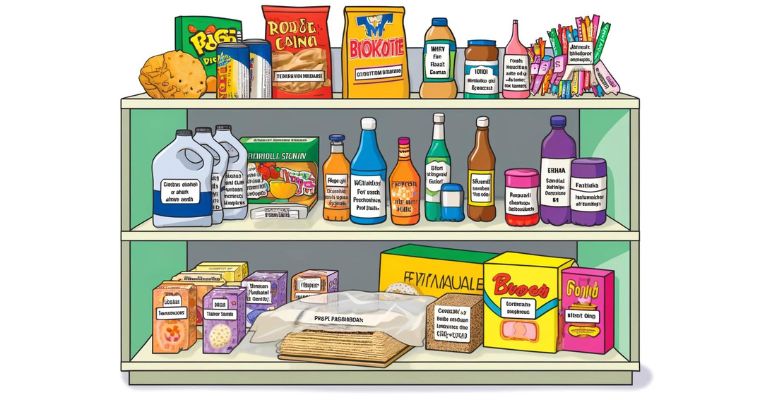
The Environmental Working Group (EWG) has released a guide titled “Dirty Dozen Guide to Food Chemicals,” which aims to shed light on some of the most concerning chemicals found in our food supply. Due to a regulatory loophole, many food additives are deemed “generally recognized as safe” by manufacturers rather than undergoing thorough safety evaluations by the Food and Drug Administration (FDA). This guide highlights twelve chemicals that consumers should be wary of, due to their potential health risks:
- Potassium Bromate in Baked Goods: Often added to flour, potassium bromate is considered a possible human carcinogen and is used in various packaged baked products.
- Propyl Paraben in Tortillas and Pastries: Used as a preservative, propyl paraben has been linked to developmental and reproductive harm.
- BHA in Potato Chips: Butylated hydroxyanisole, or BHA, a preservative in cured meats and snacks like potato chips, is identified as a possible carcinogen.
- BHT in Cereals: A chemical cousin to BHA, butylated hydroxytoluene (BHT) is used in cereals and other foods and is also considered a possible human carcinogen.
- TBHQ in Processed Foods: Tert-butylhydroquinone, found in products like Pop-Tarts, may negatively affect the immune system and reduce vaccine efficacy.
- Titanium Dioxide in Candy: This color additive, predominantly used in candies, may cause DNA damage.
- Brominated Vegetable Oil (BVO) in Sodas: Used to stabilize citrus flavors in soft drinks, BVO can lead to neurological issues.
- Artificial Colors in Various Foods: Synthetic dyes present in many foods and beverages can impact development and behavior in children. The guide specifically mentions concerns regarding Red 3, Red 40, Yellow 5, Yellow 6, Blue 1, Blue 2, and Green 3.
- Artificial Sweeteners: These substances can disrupt hormones that regulate metabolism, potentially affecting weight management.
- Azodicarbonamide (ADA) in Baked Goods: Used as a dough conditioner and bleaching agent, ADA is associated with cancer risk and could harm the liver, kidneys, blood, and nervous and respiratory systems.
- Propyl Gallate in Various Foods: This preservative, found in vegetable oil, meat products, and chewing gum, may disrupt hormones and has been linked to asthma, hyperactivity, and cancer.
- Sodium Benzoate in Beverages and Dressings: Common in carbonated drinks and other food items, sodium benzoate poses a cancer risk when it reacts with ascorbic acid, citric acid, or vitamin C to form benzene.
The EWG’s guide serves as a critical tool for consumers aiming to make safer food choices in a landscape where regulatory oversight is often lacking. It underscores the importance of scrutinizing ingredient lists and being informed about the potential health impacts of food additives.




